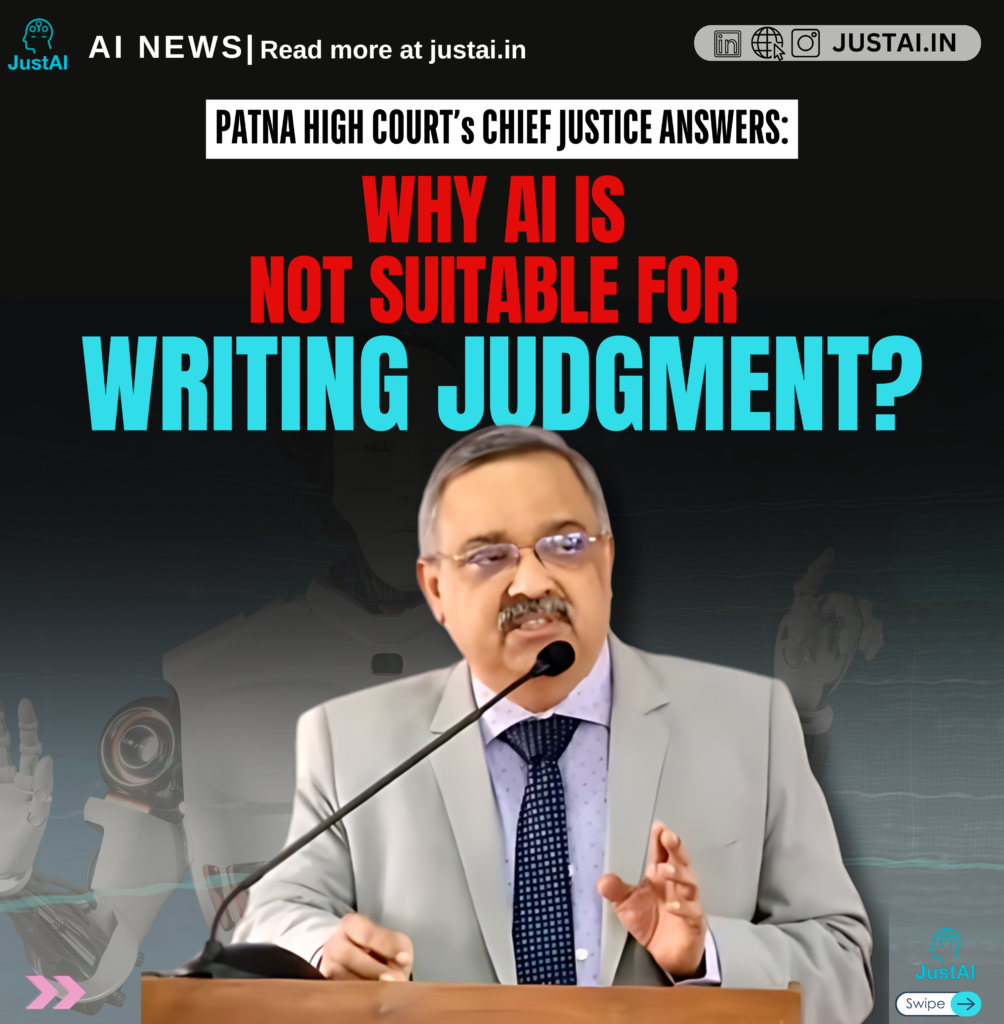Key Highlights:
- Human Insight is Essential in Judgment Writing: Chief Justice Chandran emphasized that while technology enhances many legal processes, writing judgments requires human interference due to moral reasoning, emotional intelligence, and contextual understanding—areas where AI falls short.
- AI’s Current Limitations: He expressed skepticism about AI’s potential to write judgments, stating that the time hasn’t yet come for AI to replace human judges in this critical task, as it lacks the nuanced understanding necessary for interpreting the law.
- The Importance of Human Effort in Legal Work: Highlighting the voluntary work of 1,700 district judiciary officers who translated Supreme Court judgments into regional languages for free, the Chief Justice underscored the value of human dedication and empathy—qualities AI cannot replicate.
As the world continues to embrace technology, discussions surrounding the role of Artificial Intelligence (AI) in various sectors, including the legal system, are becoming increasingly common. However, the potential of AI to write judgments has been met with skepticism, most notably by Chief Justice K Vinod Chandran of the Patna High Court. At the launch of six new applications developed by the court’s e-Committee, the Chief Justice voiced his concerns, emphasizing that while digital advancements are crucial for the legal system, AI’s role in crafting judgments remains questionable.
The Role of Human Judgment in Legal Decisions
Chief Justice Chandran’s remarks highlight a fundamental point: the need for human insight and intuition in the judicial process. He stated, “Essentially what we have to realize when we go into computerization is that there are certain things where human interference cannot be avoided, like writing judgments.” The Chief Justice acknowledged that while technology has enhanced many aspects of the legal process, judgment writing demands a level of emotional intelligence, moral reasoning, and contextual understanding that AI simply cannot replicate. The application of legal principles often involves a delicate balancing of facts, laws, and societal values—areas where human reasoning remains superior.
AI’s Limitations in Judicial Interpretation
AI is undeniably capable of processing vast amounts of data at unprecedented speeds, but when it comes to interpreting the law, nuance is everything. According to Chief Justice Chandran, despite the excitement surrounding AI’s potential in various fields, its use in writing judgments may be premature. “I hear a lot about that all over, but I do not think the time has come yet to speak about what you call AI judgments,” he commented. His words underline the idea that AI, though powerful, is still far from understanding the intricate layers of human society, culture, and ethics required in the legal decision-making process.
Recognizing Human Efforts in Legal Translation
Chief Justice Chandran’s skepticism toward AI also stems from a deep respect for the human touch in the legal field. He praised the voluntary work of 1,700 district judiciary officers who undertook the translation of Supreme Court judgments into regional languages. He pointed out that while others were paid for similar work, these officers contributed their efforts for free, a reflection of dedication that AI cannot emulate. This example highlights the value of human effort and empathy, essential components of the legal process, which AI lacks.
The Human Touch Cannot Be Replaced
Judicial decision-making is not just about interpreting the law—it is about understanding the human impact of those decisions. As sophisticated as it may become, AI lacks the empathy and discretion required to make rulings that account for the human condition. As Chief Justice Chandran wisely noted, while technology can assist in many areas of the legal system, it cannot replace the essential human element in writing judgments. His skepticism is a reminder that some things—like justice—require more than just data processing; they require wisdom, compassion, and insight.
In conclusion, while AI continues to play a transformative role in various sectors, its application in writing legal judgments remains contentious. The words of Chief Justice K Vinod Chandran serve as a thoughtful reminder that, for now, the complexities of human judgment are beyond the reach of AI.
References:

